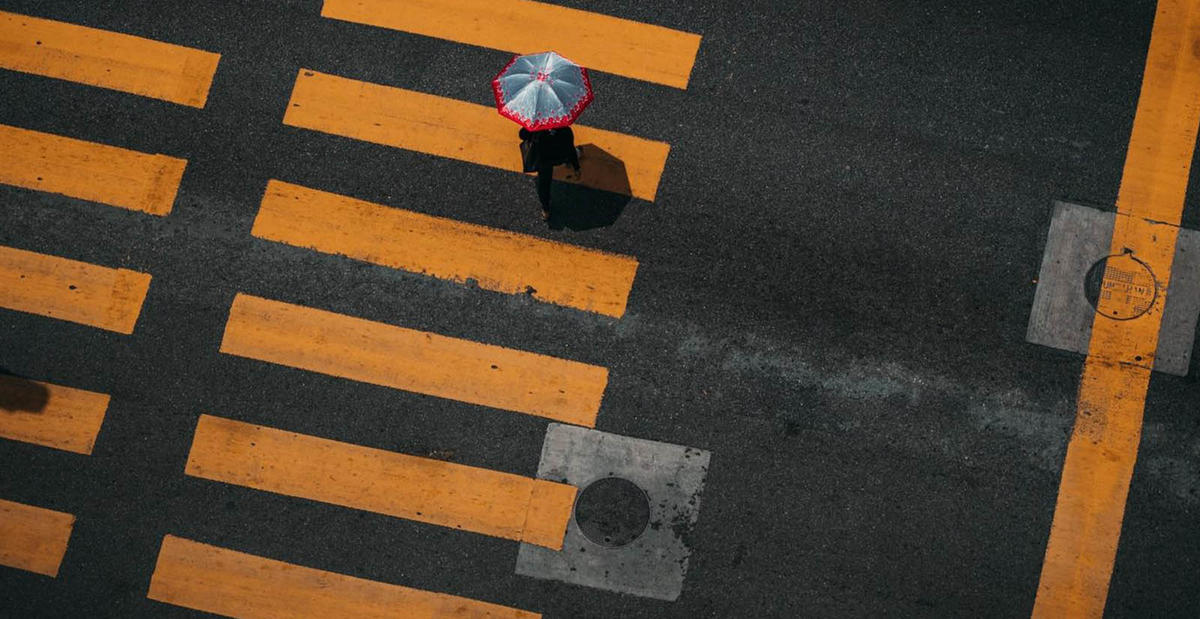Covid-19 has altered our daily lives in numerous waysŌĆösome of which may be here to stayŌĆöcausing us to redefine our concept of ŌĆ£normal.ŌĆØ The pandemic will impact macrosystems and economies and fundamentally change how we work and interact with each other. While this is an abrupt and unprecedented shift, it also presents an opportunity for us to think about how we want the world to function in this new normal. We can rebuild society in a more sustainable way.
More and more, we are discovering that human health and the health of the planet are linked. A recent by Harvard University found that higher levels of air pollution were linked to higher mortality rates from Covid-19 and some are noting that habitat destruction caused by drives animals in closer proximity with humans, increasing the possibility of novel viral transmission.
2020 is the 50th anniversary of Earth Day and marks a decade until major sustainability targets including the and UN Intergovernmental Panel on Climate ChangeŌĆÖs to avoid climate catastrophe come due. Stakeholders such as investors, media, consumers and NGOs have indicated that the pandemic will be a watershed moment and companies will be held accountable for how they addressed sustainability when faced with difficult choices.
ŌĆ£This is a moment when the wheat will be separated from the chaff," John Goldstein, head of sustainable finance at Goldman Sachs recently, noting that ŌĆ£the stuff that was being done more for appearances or a label is getting constructively rationalized.ŌĆØ Joel Makower, Chairman & Executive Editor of Greenbiz, in late March that ŌĆ£this is exactly the right time to be talking about climate changeŌĆ” Doing any less will risk another existential global crisis, one for which there will be no vaccine.ŌĆØ
Many companies and institutions have already braved this moment to . BlackrockŌĆÖs* Larry Fink announced on March 29th that the company would be putting an increased focus on sustainability across their alternatives platform. Meanwhile, the U.S. federal government has to take a partial stake in airlines as part of the bailout, incentivizing greener commitments in exchange for taxpayer support.
In the wake of any major challenge comes an opportunity for partnership and license for more . This is a rare second chance to rethink our infrastructure, our supply chains and our commitments to sustainability. We may have to redesign our ŌĆöwhy not design them to be more energy efficient? We are already seeing the environmental benefits of reduced trafficŌĆöwhy not use this time to invest in ? The energy, built environment, food, technology, logistics and financial sectors are just a few that could hold the keys to sustainable reinvention opportunities.
Public-private partnerships can also be an important part of this evolution. The worldŌĆÖs response to Covid-19 has demonstrated how quickly and effectively government, NGOs and businesses can to create change. Exxon has with the Global Center for Medical Innovation to create face masks for medical workers, and Ventec, General Motors and StoptheSpread.org have to manufacture ventilators. This is an opportunity to take lessons from these partnerships and apply them to improving the sustainability of our system for a win-win result. As case in point, the 2020 ╝½└ų╩ėŲĄ Trust Barometer found that trust in institutions increases by 13-20 percent when they partner with one another.
Globalization has linked us all together inextricablyŌĆöit is what makes global pandemics possible, and it is what makes us able to overcome them. But if we take this as an opportunity to rebuild, rather than to simply weather through, we can emerge on the other side better prepared to be stewards of the planet. This pause from ŌĆ£business as usualŌĆØ may be just the opportunity we needed.
*╝½└ų╩ėŲĄ Client
Emily Chan is Senior Vice President, Corporate Affairs.
╝½└ų╩ėŲĄ is supporting businesses and organizations looking to better understand the Covid-19 pandemic and its public health implications; manage communications with employees and customers; and receive guidance on strategies and policies for effective preparedness and response efforts.
Please complete the below form to speak to ╝½└ų╩ėŲĄ's Covid-19 advisory team:







